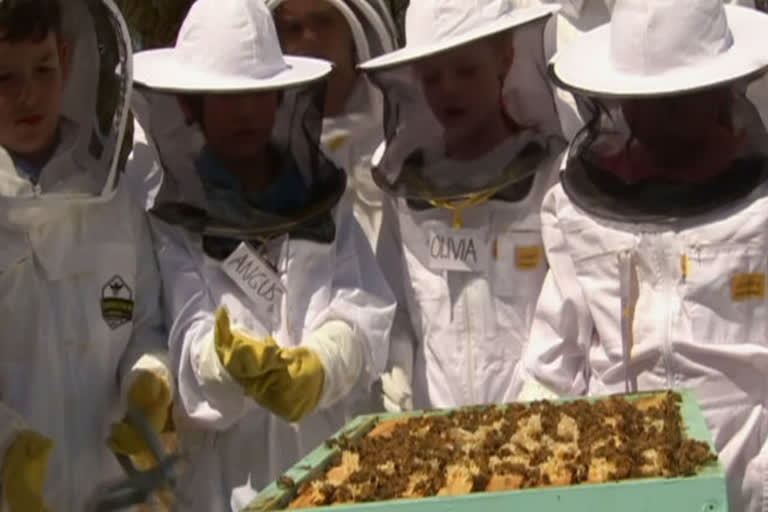Tasmania: Australia's only junior beekeeping club is preparing for competition in Europe where their knowledge of bees, bio-security issues and honey labelling laws will be put to the test. There is also hope the group will help resolve the issue of an ageing workforce.
Protective clothing on, this next generation of beekeepers in Tasmania get straight to work.
Can you hear that? The subtle hum of bees in the distance.
Today's lesson will go through the steps of honey extraction.
"Wow, what do you see guys," says the founder of the group, Anita Long.
She is cautious when lifting the frame.
"Lots of honey," one member replies.
This group is believed to be the only junior beekeeping club in Australia.
"We like to teach the children virtually from the life cycle of the bee right through to the pollination and then onto honey and all the steps in between," Long explains.
One member of the club explains why she enjoys learning about bees: "They're good for the environment and they help us stay alive."
The group is aged from 7 to 17.
They remove the frames of the beehive and place inside the green trolley.
Their passion for insects is clear.
"I love that they can all hear each other even though if they're not near each other they can still hear each other by just doing like a dance," says another member.
And how do bees make the honeycomb ?
"To make it they eat it (wax) and throw it up and then they eat it and throw it up through the hive so they all work together to make it," says one student.
Lesson finished these young beekeepers make their way back to the classroom.
Bee enthusiast, Ava McCool says, "beekeeping will always be in my future either as a hobby or a job."
It's the sort of buzz the honey industry wants to hear.
That's because most beekeepers in Australia are over the age of 50.
"The average age of beekeepers in Australia is four years older than the average farmer so we're an ageing workforce we need more young people coming through to replace us eventually," says beekeeper Lindsay Bourke.
And now time to extract the honey !
The Tasmanian Junior Beekeepers are raising money to fly to Slovakia in July.
They hope to become the first Australians to take part in an international beekeeping competition.
Also read- High-tech subs taking scientists beneath waves
(With inputs from APTN)



